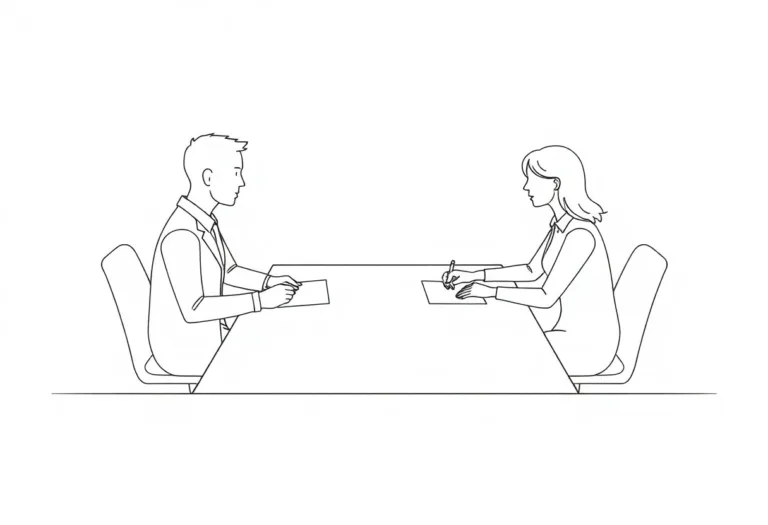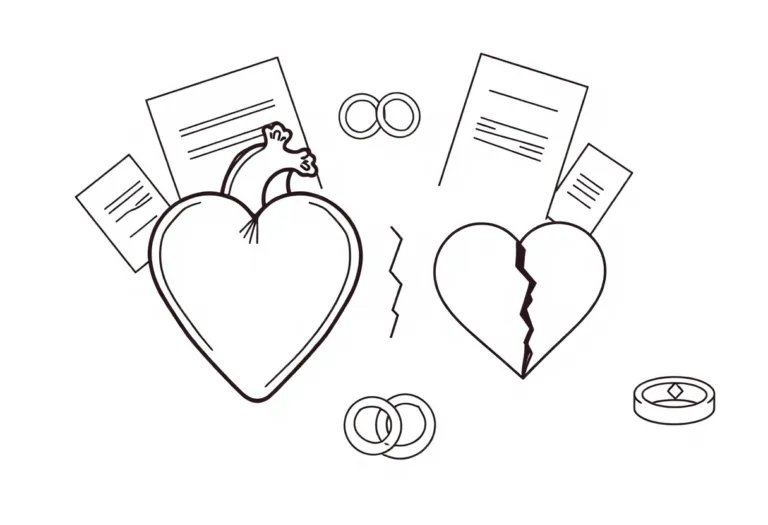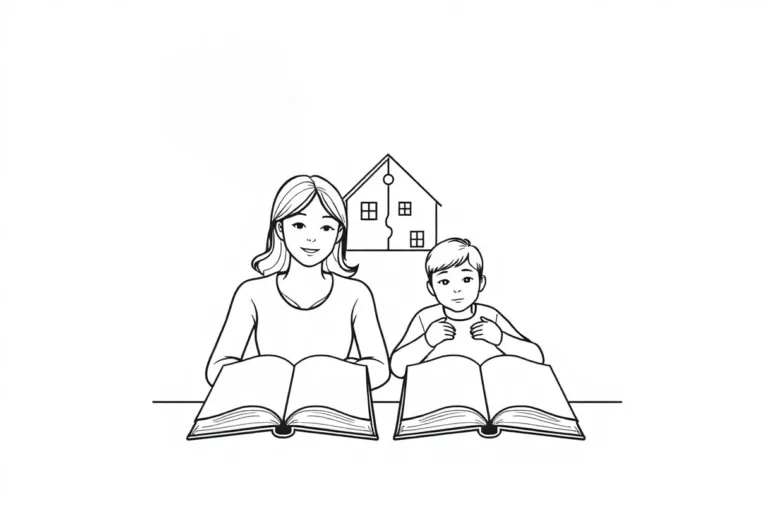The Role of Therapy During and After Divorce
The Role of Therapy During and After Divorce: Divorce can be one of the most emotionally taxing experiences you may face in life. Navigating the complex feelings of grief, loss, and uncertainty can feel overwhelming, but engaging in therapy can provide you with important support. In therapy, you can process your emotions, gain clarity about your situation, and learn coping strategies to help you move forward. Furthermore, therapy can assist you in building healthier relationships post-divorce, allowing you to foster a brighter, more stable future for yourself and your loved ones.
Key Takeaways:
- Therapy provides a safe space for individuals to process emotions and navigate the complexities of divorce.
- It can help clients develop coping strategies to manage stress and anxiety during the transition.
- Therapy supports effective communication skills, aiding in negotiations around co-parenting and property division.
- Post-divorce therapy can facilitate healing and personal growth, helping individuals move forward positively.
- Group therapy or support groups can offer community and connection, reducing feelings of isolation during this challenging time.

Understanding Divorce
Your divorce represents a significant life change, often accompanied by a range of emotions and challenges. It involves not only the legal separation of two individuals but also a profound emotional transition that can impact all aspects of your life. Understanding the full scope of divorce is imperative to navigate this difficult time, providing you the insight necessary to manage your feelings and decisions moving forward.
Emotional Impact
About half of all marriages end in divorce, and along with this statistic comes a spectrum of intense emotions. You may experience feelings of sadness, anger, confusion, or even relief. Acknowledging and processing these emotions is important, as they can deeply affect your mental well-being and future relationships.
Common Challenges
Beside emotional turmoil, many face additional challenges during divorce, including financial change, custody issues, and social adjustments. These factors can add layers of stress and anxiety, making it difficult to focus on self-care and recovery. It is imperative to seek support during this time to help you navigate these complex situations.
Plus, as you adapt to your new reality, you might encounter significant challenges such as financial instability, navigating co-parenting arrangements, and the potential for social isolation. These elements can easily lead to increased stress and uncertainty. Being proactive in seeking support—whether through friends, family, or professional therapy—can provide the tools necessary to handle these issues effectively and foster your healing journey during this transformative phase of your life.
Importance of Therapy During Divorce
Clearly, therapy serves as a vital support system during divorce, providing a safe space for you to process your feelings and gain insights into your emotions. It can help you navigate the complexities of your situation and develop coping strategies to manage stress and uncertainty. By seeking professional guidance, you can better understand the emotional impact of the divorce, ultimately fostering a healthier transition into your new life.
Navigating Emotions
Among the many challenges of divorce is the emotional turmoil you may experience. Therapy can help you confront and understand these emotions, allowing you to process grief, anger, and confusion in a constructive manner. By articulating your feelings, you can move towards acceptance and healing, making it easier to adjust to the changes in your life.
Communication Strategies
By utilizing effective communication strategies in therapy, you can learn to express your feelings and needs more clearly. This skill is imperative in navigating the often complicated discussions surrounding separation and co-parenting.
Even minor misunderstandings during divorce can escalate, causing additional tension and conflict. Establishing clear communication channels is vital, allowing you to express your thoughts and feelings without negativity. Use “I” statements to share your feelings without blaming others, and practice active listening to demonstrate empathy. Engaging in open and honest dialogue fosters understanding and helps you avoid misinterpretations that can lead to more significant issues. Therapy can equip you with the imperative communication tools to ensure that you and your ex-partner can engage in productive conversations for the sake of both yourselves and any children involved.
Types of Therapy Available
All individuals navigating divorce can benefit from various types of therapy. Here are some options:
| Type of Therapy | Description |
|---|---|
| Individual Therapy | One-on-one counseling for self-exploration and healing. |
| Couples Therapy | Guided sessions for managing relationship dynamics. |
| Group Therapy | Support from peers experiencing similar challenges. |
| Family Therapy | Focus on improving communication within the family unit. |
| Art Therapy | Coping through creative expression. |
Knowing the type of therapy that suits your needs can enhance your healing journey.
Individual Therapy
For those seeking personal growth and healing, individual therapy offers a safe space to explore your feelings, fears, and goals after divorce. It can help you process emotions, develop coping strategies, and build resilience as you navigate this challenging transition.
Couples Therapy
Therapy sessions can provide insights and strategies when you’re navigating the complexities of a relationship during or after a divorce. It focuses on improving communication, understanding each other’s perspectives, and fostering a collaborative environment.
It’s important to engage in couples therapy if you aim to resolve lingering issues or address conflicts with your partner. Through these sessions, you can develop healthier communication patterns and enhanced emotional connections, helping you move forward more positively. A skilled therapist can guide you through discussions that may feel overwhelming or uncomfortable, facilitating understanding and coexistence during transitions. With this support, you can avoid the negative impacts that unresolved issues can trigger, enabling a more amicable separation or cooperation in co-parenting.
The Role of Therapy Post-Divorce
For many individuals, therapy post-divorce serves as a vital resource for healing and rediscovering oneself. It provides a safe space where you can process emotions, explore new identities, and develop coping strategies. Engaging in therapy can help you navigate the complexities of life after divorce, allowing you to emerge stronger and more self-aware.
Healing and Moving Forward
The journey of healing after a divorce is often filled with challenges, but therapy can foster a sense of hope and renewal. By addressing lingering pain and focusing on personal growth, you can build a brighter future and embrace new opportunities.
Co-Parenting Support
Around post-divorce life, co-parenting can present unique difficulties. Therapy can be beneficial in navigating these challenges, as it offers tools for effective communication and conflict resolution with your ex-spouse. This support can contribute to a more harmonious environment for your children.
Further, therapy provides a platform to address the emotional dynamics of co-parenting. You might struggle with anger, resentment, or guilt, and a therapist can help you process these feelings constructively. By learning to communicate openly, you can establish better boundaries and create a supportive atmosphere for your children. Therapy encourages collaboration and problem-solving, aiming to minimise disputes and prioritise the well-being of your kids, crucial for their emotional stability during transitions.
Finding the Right Therapist
Despite the emotional turmoil that can accompany a divorce, finding the right therapist is important to navigating this life transition. It’s important to choose someone who not only understands the complexities of divorce but can also guide you towards personal growth and healing. Taking the time to identify a therapist who resonates with your needs can significantly impact your ability to cope effectively during and after the divorce process.
Qualities to Look For
Therapist selection can greatly influence your healing journey, so look for someone who possesses empathy, active listening skills, and a supportive demeanour. Experience with divorce-related issues is also beneficial, as you want someone who can understand the emotional landscape you may be traversing. Additionally, ensure that they are licensed and have positive reviews from previous clients to confirm their professionalism and effectiveness.
Questions to Ask
One of the best ways to gauge whether a therapist is the right fit for you is to prepare thoughtful questions prior to your initial session. This can help clarify their approach and ensure it aligns with your goals for therapy.
Plus, don’t hesitate to ask about their experience with divorce, their therapeutic approach, and any specialisations they may have. Inquire about their methods for assessing a client’s progress and how they adapt to individual needs throughout the process. Asking these targeted questions can help you identify a therapist who not only offers expertise but also fosters a safe and trusting environment, which is vital for your emotional recovery. Be open to following your intuition; if you feel a connection and comfort, that’s a positive sign.
Success Stories: Therapy Outcomes
Now, many individuals have experienced profound changes in their lives through therapy during and after divorce. By seeking professional help, they have found ways to navigate the emotional turmoil, improve communication, and foster healthier relationships. These transformations not only contribute to personal growth but also empower individuals to embrace new beginnings and redefine their lives positively.
Personal Testimonials
Therapy can be a transformative experience, as many individuals find themselves discovering newfound strength and resilience. They report improved emotional regulation, stronger coping skills, and a better understanding of their needs and boundaries. The support from a therapist often enables you to process grief and anger, which is important for healing and moving forward after a divorce.
Long-Term Benefits
The long-term benefits of therapy extend far beyond the divorce process. It equips you with important tools for personal growth, emotional intelligence, and conflict resolution. You will cultivate a profound understanding of yourself, leading to healthier relationships and a more fulfilling life in the future.
Success in therapy can lead to transformative life changes. You may notice improved self-esteem, enhanced relationships, and a greater sense of clarity regarding your goals and desires. Therapy works to empower you as you develop a deeper understanding of your emotions and behaviour patterns. Moreover, you will cultivate vital coping strategies that can serve you well through life’s challenges, ensuring that you maintain a healthy mental state long after the divorce process is complete. Ultimately, therapy fosters resilience, allowing you to approach new opportunities with confidence and positivity.
To wrap up
Considering all points, therapy can serve as a vital resource for you during and after a divorce. It provides a safe space for you to process your emotions, navigate complex feelings, and develop coping strategies. Engaging in therapy can also help you rebuild your sense of self and establish healthier relationships moving forward. By prioritising your mental well-being, you empower yourself to emerge from this challenging experience with resilience and clarity, ultimately leading to a more positive future.
FAQ
Q: How can therapy help during the divorce process?
A: Therapy can provide a supportive environment for individuals going through a divorce. It helps in processing emotions such as sadness, anger, and anxiety. Through therapy, one can gain clarity regarding their feelings and thoughts, develop coping strategies, and work on communication skills that can be beneficial, especially if children are involved. Additionally, therapists often guide individuals to set realistic goals for their future, supporting a smoother transition during this challenging time.
Q: What kind of therapy options are available for those experiencing a divorce?
A: Several therapy options exist for individuals undergoing a divorce. Individual therapy focuses on personal healing and coping strategies. Group therapy offers a shared space with others who have similar experiences, allowing for communal support and learning. Couples therapy, although sometimes considered to resolve issues, can also be used as a means to achieve closure and amicable communication. Some individuals may also benefit from workshops or seminars on divorce recovery that focus on skills and tools for moving forward.
Q: How does therapy address co-parenting challenges after divorce?
A: Therapy can be instrumental in navigating co-parenting challenges post-divorce. By engaging in therapy, parents can better understand their emotions and reactions, leading to improved communication with each other. Therapists can provide strategies for conflict resolution and encourage collaborative parenting techniques, which can mitigate stress for both parents and children. This type of therapy often focuses on maintaining a supportive environment for children amidst the changes brought on by divorce.
Q: When is it a good time to seek therapy after a divorce?
A: Seeking therapy after a divorce can be beneficial at various stages. For some, it may be immediately after the separation to help process the grief and loss associated with the end of the relationship. Others might find it useful several months later, as they navigate new challenges and adjust to their new life. Ultimately, if feelings of stress, sadness, or confusion linger beyond the immediate aftermath of divorce, it’s a sign that therapy could provide valuable support and guidance during the healing process.
Q: Can therapy help in rebuilding self-esteem after a divorce?
A: Yes, therapy can significantly assist individuals in rebuilding their self-esteem following a divorce. The therapeutic process often involves exploring personal identity outside of the relationship, addressing negative beliefs that might have developed, and fostering self-acceptance. A therapist can guide individuals in setting new personal goals, focusing on strengths, and developing a more positive self-image. By working through these aspects, individuals gain confidence and a clearer understanding of their value and capabilities moving forward.
Dating after divorce | Separation and divorce |divorce mediation






